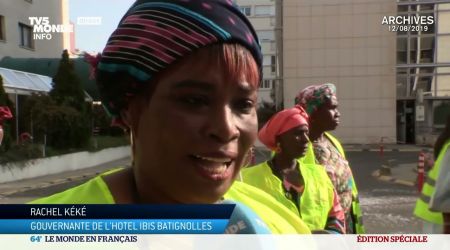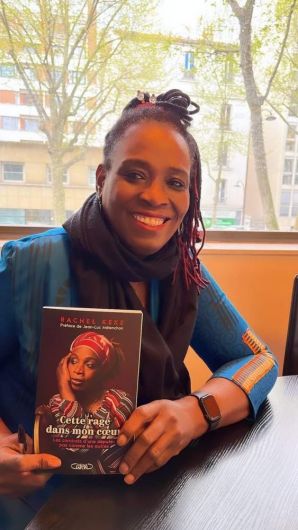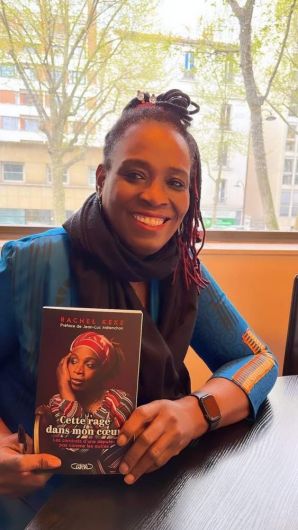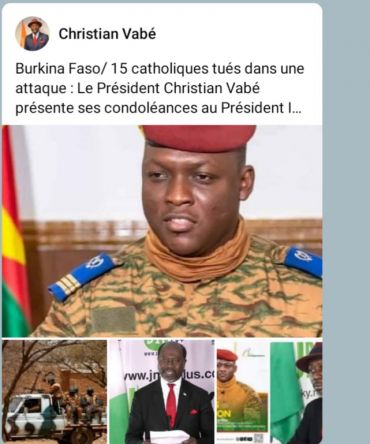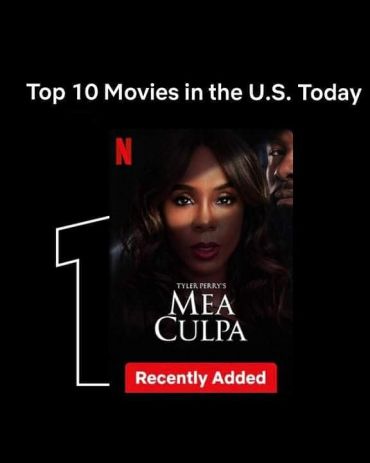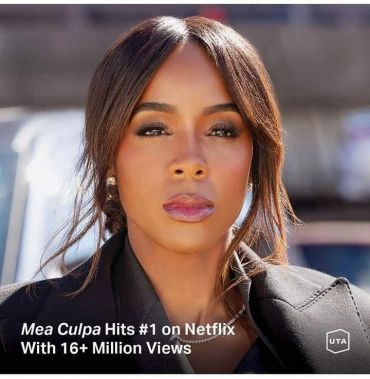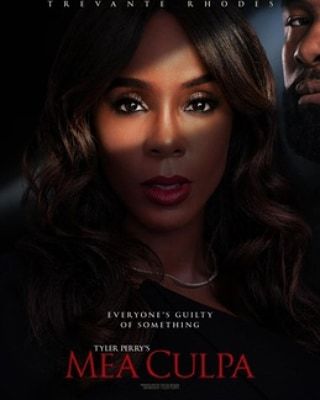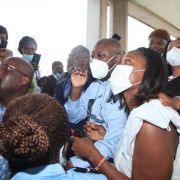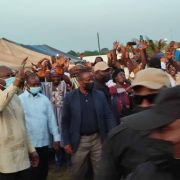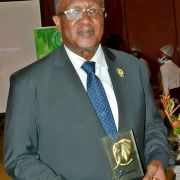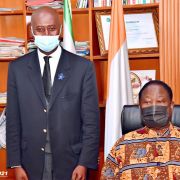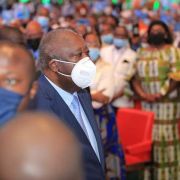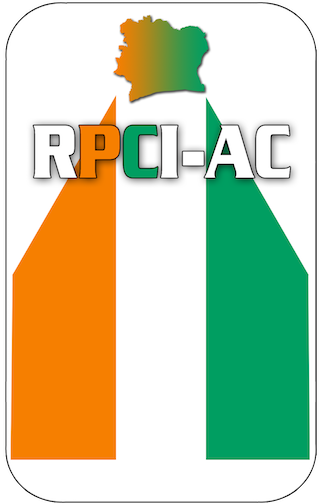Bernard Houdin, adviser to President Gbagbo: « Our position is clear. No election without respect for human rights of every Ivorian »
Le 10 novembre 2011 par Africandiplomacy.com - 1/ Is there a real inability to ensure the safety of Ivorian people or should we be more talking about a lack of willingness?
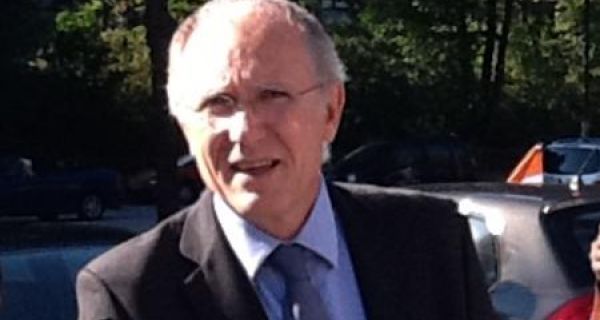
Le 10 novembre 2011 par Africandiplomacy.com - 1/ Is there a real inability to ensure the safety of Ivorian people or should we be more talking about a lack of willingness?
Everyone who lives in the country can see how odd the situation is. On April 12, the French Prime Minister said at the French National Assembly that "he was proud that the French army has helped restore democracy in Ivory Coast"! Today we see what this really is: extortion, freedom of speech impeded, restriction on the press, etc...
But the security issue itself tells more about the nature of the regime that have been put in place in Abidjan. It is a motley army that "ensures" security on its own terms. After putting the northern side of the country under their archaic rules since September 2002, they are now raging in the southern part of the country where most of the wealth is concentrated. Politicians gesticulate and rebel leaders amass huge fortunes, all of this under the "supervision" of both French and UN forces. All this is still going on. But there is a serious risk of reaching the point of no return within the population.
2/ Considering that is it reasonable or appropriate to maintain any electoral process?
This "power" will hold parliamentary elections in December. How do you organize such a vote under the conditions that prevail today in Ivory Coast? Either it is for Mr. Ouattara to be "plebiscite" in an election and fill almost all the seats in the National Assembly, or he is holding a "free and fair" poll and there some basic conditions are to be met before all things and, first, the release of all political prisoners, starting with President Gbagbo and the First Lady (who remain as we may recall, the Vice-President of the country current National Assembly).
Our position is clear: no election without respect for human rights of every Ivorian.
For those who have experienced the Presidential campaign of 2010, they witnessed what a "free and fair" election was at least until Election Day, because we know more about what happen next. Here is the opportunity to recall that President Gbagbo is the "father" of multiparty, with elections as the focal point. But "flatten" the elections in a coercive system and this is what would be the case if the election were to be held in the current situation, would be a denial of democracy on which Ivorian would not be fooled.
3/ Which side would have more to lose in case of boycott?
We used to say that "an empty chair policy" in many cases lead to nothing. But still, there are some limits to these kind statements, and as I told you, and I quote, the minimum conditions for free and fair vote does not exist in Ivory Coast at the moment. If this ‘power’ keep insisting on maintaining those elections, he would be taking the risk of being "indexed" by certain part of the international community and with no doubt will lose its credit with some key institutions for its future.
4/ Do you feel that the international community is quietly monitoring this situation or do you rather think it will eventually end up changing its own reading of the Ivorian political reality?
The coming months will significantly alter the international context. Critical elections will arrive in both France and the United States, in particular, and in some African countries that have played a certain role as "surrogates" in the Ivorian crisis. We should estimate the potential impact of these changes to come and it is our responsibility and duty to "invite" Ivory Coast in the debates that will take place on these occasions.
More precisely, our role is to bring the international community to take stock of reality, which requires constant repetition in order to make people discover the truth about each one of the events from September 2002 to April 11, 2011. Everyone who cares about this country and this continent should be aware of all the important facts that led to this current situation so that this kind of thing could easily be avoided in the future.
5/ President Gbagbo ideological vision is perceived by some as based on the concept of freedom. Why was so difficult for such a vision to match with the main interests of the international community
This is the main paradox of the crisis: the real Democrat is brutally fought in the name of democracy and in favor of a coup that benefit an autocratic ruler... Maybe one day one would give a logical explanation of what I see as very unbelievable situation.
But President Gbagbo use say this words to his opponents: "let's sit down and let’s have a direct talk." This was known as one of his most favorite, famous and legendary expression. But you see in a discussion you do not always choose your partner. The facts are there: This power was installed in Abidjan under conditions that are problematic; it is with its rulers but also its ‘sponsors’ which should be discussed first.
6/ On the administrative and territorial field we see various forms of hesitation. What does that say to you there?
It is clear that the rigor and simplicity are far to be the cardinal virtues that govern the choices of the current regime. Beyond the nature of the "waltz" of acronyms, decisions on administrative restructuring of the country are emblematic of a power that prioritizes announcement effects. While the country is in the doldrums of political, economical and social development, why is it so urgent to turn upside down the administrative map of the country like this? Such reforms which would require years of preparation prior to execution in western countries are announced with much ado and noises, in a country where daily management of everyday life is itself a major difficulty.
7/ How is it possible that despite ‘great’ support from the international community this power has such a hard time in meeting his main deadlines?
First let me recall some essential truths:
- In ten-year President Gbagbo has increased the state budget of 1600 to 2,800,000,000,000 CFA francs,
- He received in March 2009, the Decision Point for the HIPC Initiative (The International Monetary Fund Program for Heavily Indebted Poor Countries) which was in a certain way a recognition by international institutions of his good financial governance of the country,
- He has, since his election in the year 2000, established a wisely called "secured budget" that caused Ivory Coast to make sure that its leaving on its own public resources,
All this has been shattered: Ouattara publicly thanks France to secure his income, completion of the HIPC process is delayed and the state budget is compromised by actions of the so called ''com'zones'' who are in fact the real masters on the ground, despite peremptory assertions of the power.
8/ When recalling was it really serious to think or make people believe that the international community and institutions would have given so much money to the country with no considerations or sacrifices from the counterpart?
Promises of any kind are binding generally on those who awaiting them. Anyone who has worked in a country state mechanism well know that funds from international organizations and other states are never distributed without counterparts and are most of the time subjected to rigorous "conditionality". And, ultimately, the locals are those who end up paying the bills. For your information, the debt that President Gbagbo was going to clear through the HIPC Initiative was those left after years of the Bédié/Ouattara governance. As they say, "A dog does not change the way it sit ..."
9/ We heard a lot lately about investigations from the ICC (The International criminal court). What do you think about this sudden intrusion?
With the debate on the ICC, we are witnessing a new form of the history of Ivory Coast "revisited" by pressure groups that led to the current situation. Since his election in October 2000, President Gbagbo has undergone two attempted coups (the first in January 2001) and a second one which turned into a bloody rebellion. He had since then constantly sought a peaceful solution and, after many external initiatives, he concluded, as part of Ivorian-Ivorian negotiations, the APO (Ouagadougou Political Agreement) with the rebels. It is the failure of major terms of this Agreement by the opponents of the President, supported by foreign interests, which led to these current events.
During the eight years of occupation of the so-called ‘’zone CNO’’ (Center Northern and Western occupied territories) countless abuses were committed in this area that became a ‘’de facto no man’s land." During their assault on Abidjan, the military faction of Alassane Ouattara (he signed on March 17, 2011 an order placing these forces under his direct rules and authority) has committed war crimes against humanity that are recorded and widely documented in damning reports from humanitarian organizations such as Amnesty International and Human Rights Watch. The massacres of Duekoue, where over a thousand people were summarily killed while UNOCI troops and French Licorne Force were stationed in the area, are similar in nature to the massacre at Srebrenica in Bosnia-Herzegovina in former Yugoslavia.
The media campaign orchestrated mainly in France to "dirt" President Gbagbo (the recent coverage of the "Pan-African" newspapers Jeune Afrique is particularly nauseating in this regard) is designed to hide the real culprits who are now in place in Côte d'Ivoire. Fortunately not everyone is fooled and the debate on the ICC will allow us to restore indisputable truths.
Regarding Mr. Moreno-Ocampo, be aware that prior to be "promoted" accuser of the Generals in Argentina at the end of their dictatorship era, was in office for four years as General Attorney in Buenos Aires and, thus, was an officer of the court for the benefit of the ruling junta, and this should give him a little bit of modesty. Hopefully, we do have sufficient evidence on key issues where they seek to involve the President and we will in due time claim them.
10/ It is quite surprising to see some French politicians like the latest Martine Aubry being very hard against President Gbagbo without showing the same strength toward his opponents. Are you surprised by this kind of selective indignation?
I have been shocked by the last "out" of Madame Aubry particularly by her own wickedness. It had however cost her dearly with voters of African descent in the round-up of the French socialist primary elections. But as you could see this is symptomatic of the profound ignorance of the reality of the Ivorian peace process shared by a vast majority of the French political class, powered by a unique press release.
On the other hand, whether for the assassination of Philippe Reymond or the detention of French nationals such as Michel Gbagbo, Danielle Boni-Claverie or the others, French diplomacy, often so quick to respond on behalf of Human Rights, is curiously silent. This is an example of this "selective indignation" that you are referring to.
11/ Would it be reasonable to believe that Westerners among them members of the Socialist International as well as fervent left-wing politicians are being so misled by some media campaigns?
If you look closely you will see that Ivory Coast and Libya are two different situations, but the ‘’technique’’ used to solve them didn’t change at all. It was based on the intervention to "save" civilian. We all see in the two cases where this method got us.
And, paradoxically, when all the French political left side and most of the media are always braced against Nicolas Sarkozy on internal affairs, in both cases, they have surprisingly followed the presidential line. I think that neither leftist nor the media can do without an aggiornamento.
Anyway, it always seems easier to live in your time and howl with the wolves. President Gbagbo likes to recall the phrase: "When you dance with a blind person, do walk sometime on his feet to remind him he is not alone in the room.” It‘s for us to shake up the conventional wisdom on the Ivorian crisis, and that is be the price for things to move in the sense of the truth which could not be hidden forever.
12/ Have you recently received any news about the people who have been arrested and if so how are they doing since then?
In opposition to some of the rumors often spread on the Internet, for example, the President and all the persons illegally and illegitimately held are very much healthy. I get to communicate personally with some of them. Paradoxically they tell me to have a foolproof moral and they hope that we aren't ourselves too much discouraged! It is this particular type strength and that kind of character, starting with the President which even surprised his lawyers during their last visit of September 15. It’s very encouraging for each and every one of us in our daily struggle to restore democracy, the rule of law and human rights in Côte d'Ivoire.
Interview conducted by:
Romarick Okou for www.africandiplomacy.com
English version performed by Frank P. Kobéa.

